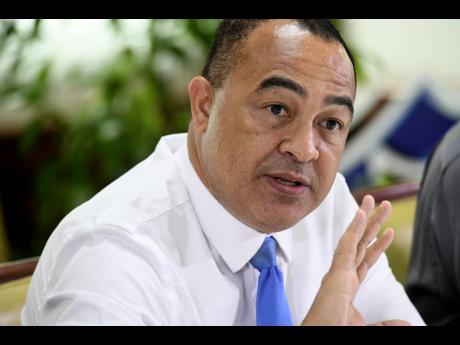Ministry budgeting for long COVID hangover
The Ministry of Health and Wellness will be making provisions within the public health system to incorporate care for people suffering from long COVID. Since the first COVID-19 case was confirmed locally in March 2020, some 143,982 Jamaicans have...
The Ministry of Health and Wellness will be making provisions within the public health system to incorporate care for people suffering from long COVID.
Since the first COVID-19 case was confirmed locally in March 2020, some 143,982 Jamaicans have been infected with the virus.
According to the World Health Organization, current evidence suggests that approximately 10 to 20 per cent of people experience a variety of mid- and long-term effects after they recover from their initial illness.
In January, local health professionals had expressed concerns about whether the number of Jamaicans suffering from long COVID could rise because of the increase in infections amid the fourth wave and the presence of the Omicron variant. The country’s fifth wave started in May.
“Will that mean an added strain on the system? I suspect it will, and this is why we are doing some of the things that we are doing, by assessing the side effects of COVID and applying a budget to that,” portfolio minister Dr Christopher Tufton told a Gleaner Editors’ Forum last week.
The minister said medical attention will be provided, in keeping with universal access to healthcare, which the Government now offers, though its quality is sometimes challenged.
“The impact of long COVID is going to manifest itself in some of the very challenges that we face now, for example, with non-communicable diseases. As good as we have done so far, I really want to give my tribute to the healthcare workers.
“The 3,000 and odd people who died from COVID-19 were already sick. For the most part, they had compromised immune systems and they are the ones who ended up in ICU and needed oxygen,” he said.
The health minister said that the long-term effects among COVID-19 survivors who were already vulnerable are likely to persist.
Tufton said that the recent launch of two programmes, one to clear surgery backlogs and the other to deal with mental health, are being spearheaded primarily because the ministry believes that COVID-19 will continue to linger and affect those areas over the next year or two.
“Long COVID would be another, and so there is an approach to primary healthcare expansion that was tabled in Parliament earlier this year, which would mean more doctors at the community level, more nurses, to the extent that we can find them, and more services,” the minister said.

